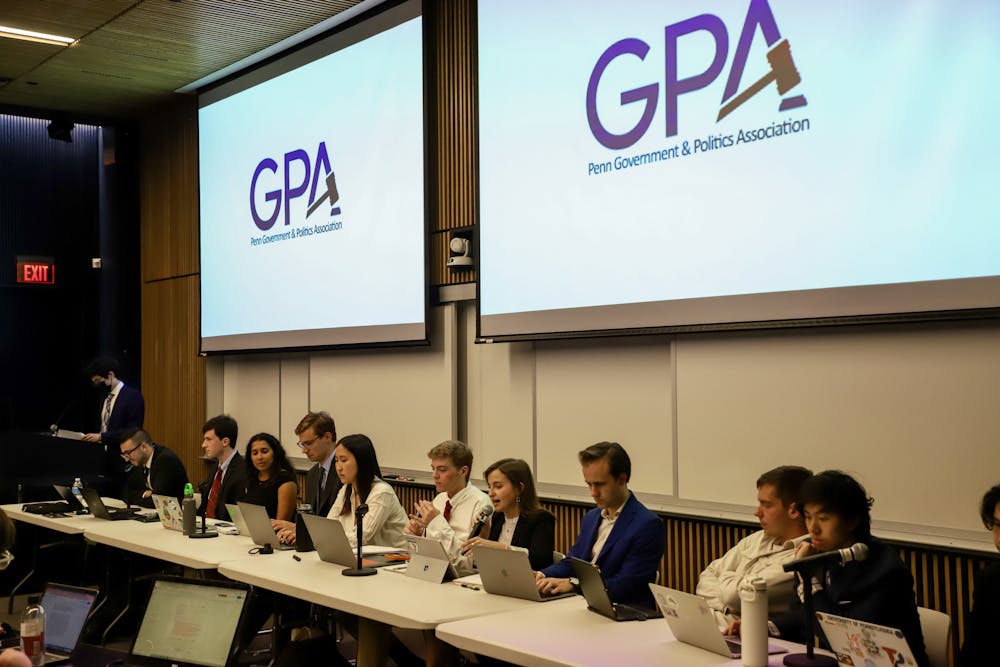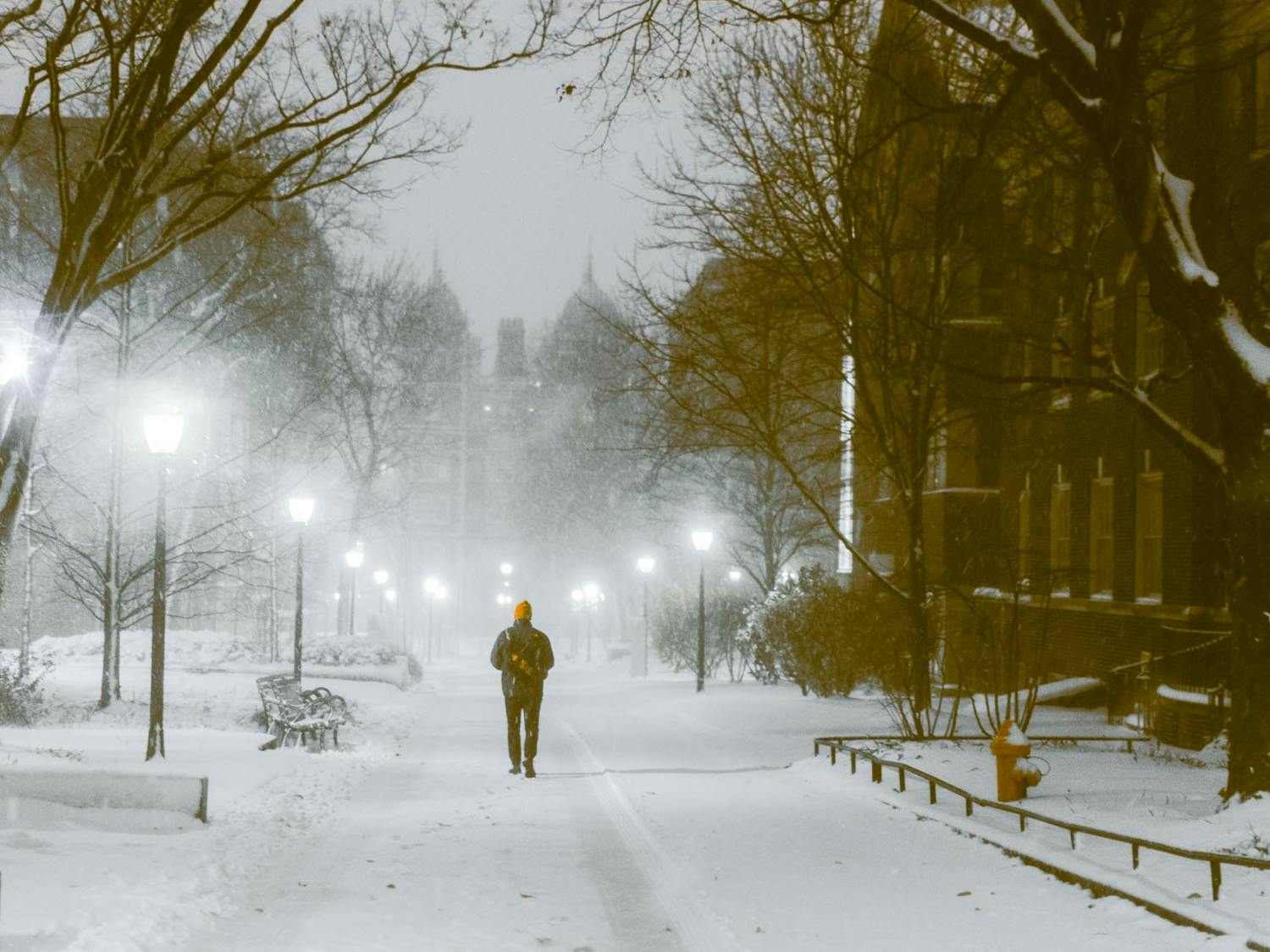When I committed to Penn, I was enthusiastic at the intellectual possibilities at my fingertips. I kept repeating that Penn was “like an all-you-can-eat buffet of knowledge that I couldn’t wait to indulge in.” However, as someone committed to her opinions and planning to pursue a major in philosophy, politics, and economics, this excitement was met with a slew of warnings from my friends and family.
Their fears of the echo chamber I’d be entering tampered my hopes for the potential life that Penn had to offer me. I was told not to speak my mind in class for fear of academic repercussions, not to join political groups on campus that might isolate me from making friends with different viewpoints, and most importantly, I was repeatedly reminded that my views would not be welcomed by the Penn community.
As someone who was active in my high school’s political science club and a writer for my school’s newspaper, this was discouraging. I had been open about all of my opinions in high school and it had only enriched my experience; why should college be any different? In truth, it shouldn’t be, and it doesn’t have to be.
One of the leading causes of the lack of diversity of thought on college campuses is self-censorship by students. As I cited in my column on the subject, 80% of students report curbing their speech for fear of academic or social repercussions. I’ve encountered many of these types of students at Penn, and they regularly complain that they fear being singled out since seemingly so few of their peers share their views.
By choosing not to speak your mind in classroom or extracurricular settings, views contrary to doctrinal opinion appear uncommon, and therefore make it appear less socially acceptable to express your thoughts in the first place. Just one instance of self-censorship creates a negative feedback loop that makes a campus community less and less tolerant over time.
Anecdotally, I have seen the impacts that my small contributions to campus dialogue have made on the comfort level of my peers. My friends, classmates, and acquaintances have thanked me for being so forthcoming with my opinions, saying it's made them confident to do the same. Whether it's an “I loved your latest column, I completely agree” comment at a party, or a “you made an interesting point in lecture, I don’t share your view but it was nice to see someone challenge the class,” the sentiment is the same. Being actively political can foster ideological diversity without being divisive.
The same can be said for my individual experiences with my professors and friends. Some of my favorite professors at Penn have been ones that read a column of mine, disagreed with a point I made, and forced me not only to defend my views, but expanded my intellectual horizons in the process. Being constantly (sometimes too often) eager to chat about the latest issues facing our world has allowed me to fully indulge in Penn’s diverse student body, sparking the most fulfilling and, often, surprising conversations of my life. I have friends who are supportive, kind, intelligent, and often don’t align politically with me (though I will regularly try to make them consider things from my point of view), but who respect my passion nonetheless.
It would be untruthful to say that the warnings I received from my friends and family didn’t come to fruition in any capacity. I have received my share of negative feedback from teaching assistants grading papers, misguided comments on the contents of my columns, and there is no doubt that members of the Penn community have labeled me based on my views. There are occasions where Penn has felt like the echo chamber I was told it would be, and where I felt that campus culture wasn’t aligned with my values. Those experiences, however, are in the minority compared to the ways I have grown as a student, a citizen, and a person, because of my political engagement on campus.
SEE MORE FROM LEXI BOCCUZZI:
If you’re considering political involvement at Penn, I encourage you to come to our political clubs’ information sessions on Sept. 1 at 5 p.m. in Cafe 58 of the Irvine Auditorium. Representatives of all of Penn’s political organizations will be there, and rather than being the close-minded activists I expected them to be when I came to Penn, you’ll meet a collection of people ready to make a difference.
Joining the Penn Government and Politics Association and Penn College Republicans were two of the best decisions I’ve made since coming to Philly. I encourage every political first year to find the club that best fits you!
Even if campus activism isn’t for you, my word of advice to each of our new Quakers is to speak your mind, and be proud of what you believe in. Take your time at Penn to develop, hone, and strengthen your opinions. If you are unapologetic about your values but willing to listen to others, people will respect you, whether they agree or not. You have an amazing intellectual opportunity ahead of you — don’t stifle it with preconceived notions of college politics. Go out and change hearts and minds!
LEXI BOCCUZZI is a College junior studying philosophy, politics, and economics from Stamford, Conn. She is the president of Penn College Republicans and Penn Political Union. Her email is boccuzzi@thedp.com.









